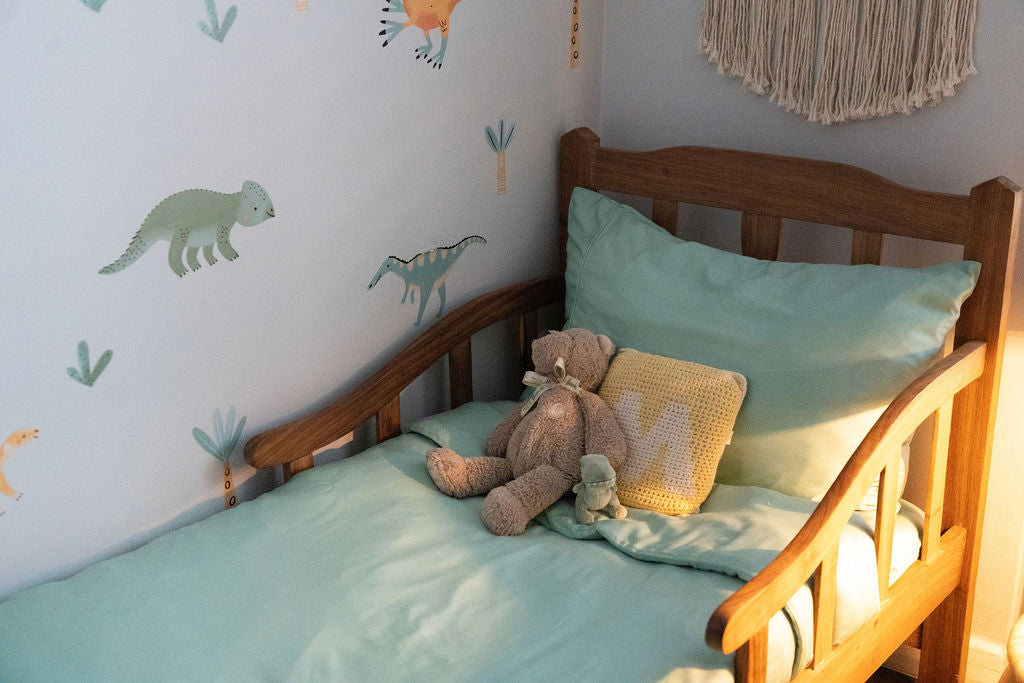How to sleep better in winter - 5 essential tips
·

·
Winter's shorter days and colder nights make it tempting to hibernate, but getting quality sleep can be surprisingly tricky in this season. So I've pulled together five effective ways to sleep better during the winter months so you can wake up refreshed and energised, no matter the temperature outside.
1. Keep Your Bedroom at an Optimal Temperature
- Cold air can promote restful sleep, but it’s essential to find a temperature that's not too chilly. Ideally, keep your room around 60-67°F (15-19°C) for most people. If that feels too cold, use layers of bedding to adjust as needed.
- Opt for natural fibre bedding, like bamboo or cotton, which provides better temperature regulation than synthetic materials. These fabrics help keep you cozy without trapping too much heat, allowing you to avoid night sweats and stay comfortable all night.
2. Invest in the Right Bedding
- Winter calls for warm, insulating bedding. Consider using bamboo sheets & down comforters, which offer warmth without needing to turn up the heat.
- Bamboo sheets can be a game changer since they’re naturally breathable and can prevent overheating if you tend to sleep hot. High-quality winter bedding provides warmth while ensuring good airflow, which helps you sleep more comfortably.
3. Establish a Cozy Nighttime Routine
- Winter evenings are perfect for winding down with comforting rituals. Consider taking a warm bath or shower before bed to raise your core temperature, which then drops when you exit, signaling to your body that it’s time to sleep.
- Warm herbal teas like chamomile or valerian root can also promote relaxation. Avoid caffeine, alcohol, and heavy meals in the hours leading up to bedtime, as these can disrupt your sleep cycle and make it harder to stay asleep.
4. Get Exposure to Natural Light During the Day
- Winter’s limited daylight can impact our circadian rhythms, making it harder to fall asleep and wake up at regular times. Aim to get outside during daylight hours, even if it’s overcast, as exposure to natural light helps regulate your sleep-wake cycle.
- If getting outside isn’t feasible, consider a light therapy box that mimics natural sunlight. This can be especially helpful in the morning to wake you up naturally and make it easier to wind down at night.
5. Keep Technology Out of the Bedroom
- Cold, dark evenings often mean more time spent indoors on screens, but the blue light from devices can disrupt melatonin production, making it harder to fall asleep. Create a technology-free zone in the bedroom to ensure that your space promotes rest.
- Try reading a book, listening to calming music, or practicing mindfulness exercises to unwind. Setting a screen curfew an hour before bed will allow your mind to relax, helping you transition more smoothly into a deep sleep.
With these winter-specific sleep tips, you can create a warm, cozy, and restful environment that supports a healthy, restorative sleep all season long. Here’s to a restful winter!


